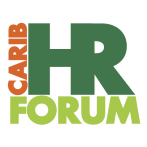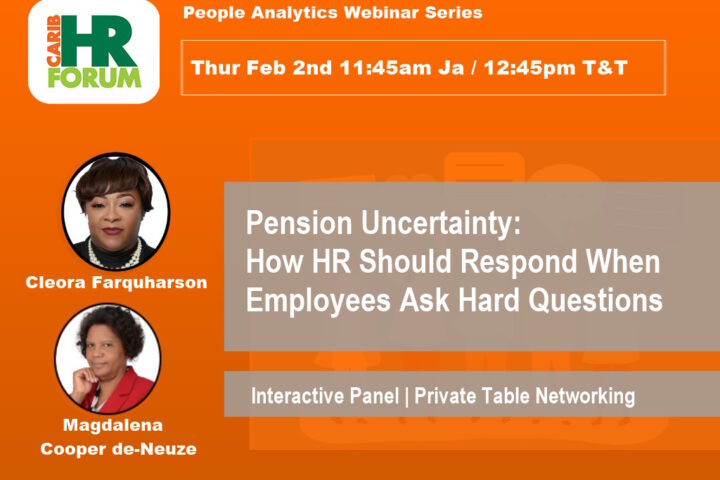 When we speak of HR Business Partnering, sometimes the views and understanding
When we speak of HR Business Partnering, sometimes the views and understanding
of this term are varied, yet all are undeniably related to the reasons for its adoption to begin with.
We have also adopted this term at Guardian Holdings and we would like to think
it is more than just a name change to us. The catalyst for this change began
with senior management asking the question of how best we can re-structure HR to
ensure it delivers maximum value to the business. If HR were to answer this value,
we would have to assume we know what the business thinks “maximum value” looks like.
We embarked on engaging an external third party to conduct some
interviews with the businesses that HR supports to determine, what they want
from HR, what HR is good at and what HR can improve upon in a nutshell. The
third party was a necessary part of this process to improve the honesty of the
feedback as much as possible as compared to if HR asked the questions about
HR.
We analyzed all the feedback and proceeded to engage in a marathon of
discussions about a range of issues. We know from all our research on HR
Business partnering about having a centre of expertise (a la David Ulrich,) but we had to
ask if we really needed that high level centre of expertise based on our size
and current requirements to justify the salaries and benefits it would take to house
specialist skills internally on a day to day basis.
We decided to adopt a developmental approach to this idea of specialist
skills. We have not recruited any high level expert skill, but we are building
the skills of our current team members across functional HR areas. Our HR
Officers are on a long term rotation programme to build and assess skills across
Performance Management, Learning and Development and Employee Relations.
The organization will not be highly dependent on one person for service and
guidance, hence decreasing the company’s vulnerability should retention be less
than perfect. In effect, we are developing our HR expertise parallel to the
organization’s need for it on a continuous basis. For the spurts of expert
advice requests, we can always seek the same at critical times.
Another key area we reviewed was our Shared Service Function, we asked what
else can we hive off from the Business Unit HR team and move to the Shared
Services area. This was a critical component aimed at providing more time for
the HR Officers at the Business Unit to engage in more value adding work as
compared to spending large chunks of time on transactional routine work.
We reviewed a number of processes and moved a range of activities to the Shared
Service, ensuring all the way that the process was seamless and all involved
the same understanding. However, having said that, this continues to be a
work in progress. It is amazing how things get confused along the way where
steps in a process take on a life of their own and don’t even resemble the steps
in the detailed documentation. The lesson here is “maintenance is critical”
while we look for improvements.
The support from the line on this “Business Partnering” concept has been crucial. The
mere fact that we started the process by asking the line for input and advice
augured well for us at the implementation stage. When it comes to the line
accepting responsibility for making people decisions that in the past rested
withHR is another matter. We constantly re-iterated our goal, which was to better
enable the line to manage their people and by extension the company. We emphasized that “HR is not the uniform police or the manager of time off, HR is about supporting the line and the business in managing and optimizing the human capital.”
A huge change is required by the line, a change that surrounds how they perceive
their job and their role in people management. In the distant past, all people
management issues were referred to HR, hence people issues were not seen as part
of the line’s role.
The integration of this role in the manager’s role now has had its challenges. In our experience, the line refers to HR or not refers to HR when it
is convenient for them to do so. It is if “bad” news for the employee, the
line may say, “HR said so!”, when really the line receives advice from HR
clearly outlining consequences of different decisions but the final decision if
for the line to make.
We have lots of work to do where this is concerned. HR needs the constant
support the senior management team on reinforcing and driving this new
accountability for people management. We have included people management metrics
on the line’s scorecard as a systematic way to hold them accountable for
these issues.
Our current challenge is having the line sign any disciplinary
correspondence to the employee. The line wants performance to improve but not in
a hurry to communicate the challenging areas and areas on poor performance to
the employee especially in writing. In conclusion, this is another area that is
considered work in progress that requires much care and attention.
We discussed:
• deciding to let our internal potential HR specialists go through their own
metamorphosis parallel to the organization’s need for expert skills with an
emphasis on retention,
• refining the role of the Business Unit HR team members and transferring
transactional work to our Shared Service ensuring a seamless relationship
• the need to have support from the line on embracing their people
management role.
Consistent with all the points noted, is the importance of role clarification and
understanding of duties, deliverables and expectations from all
stakeholders.
I trust the above simplified highlights which marks our journey along the HR
Business Partnering path was useful.
Denise Ali
[email_link]



